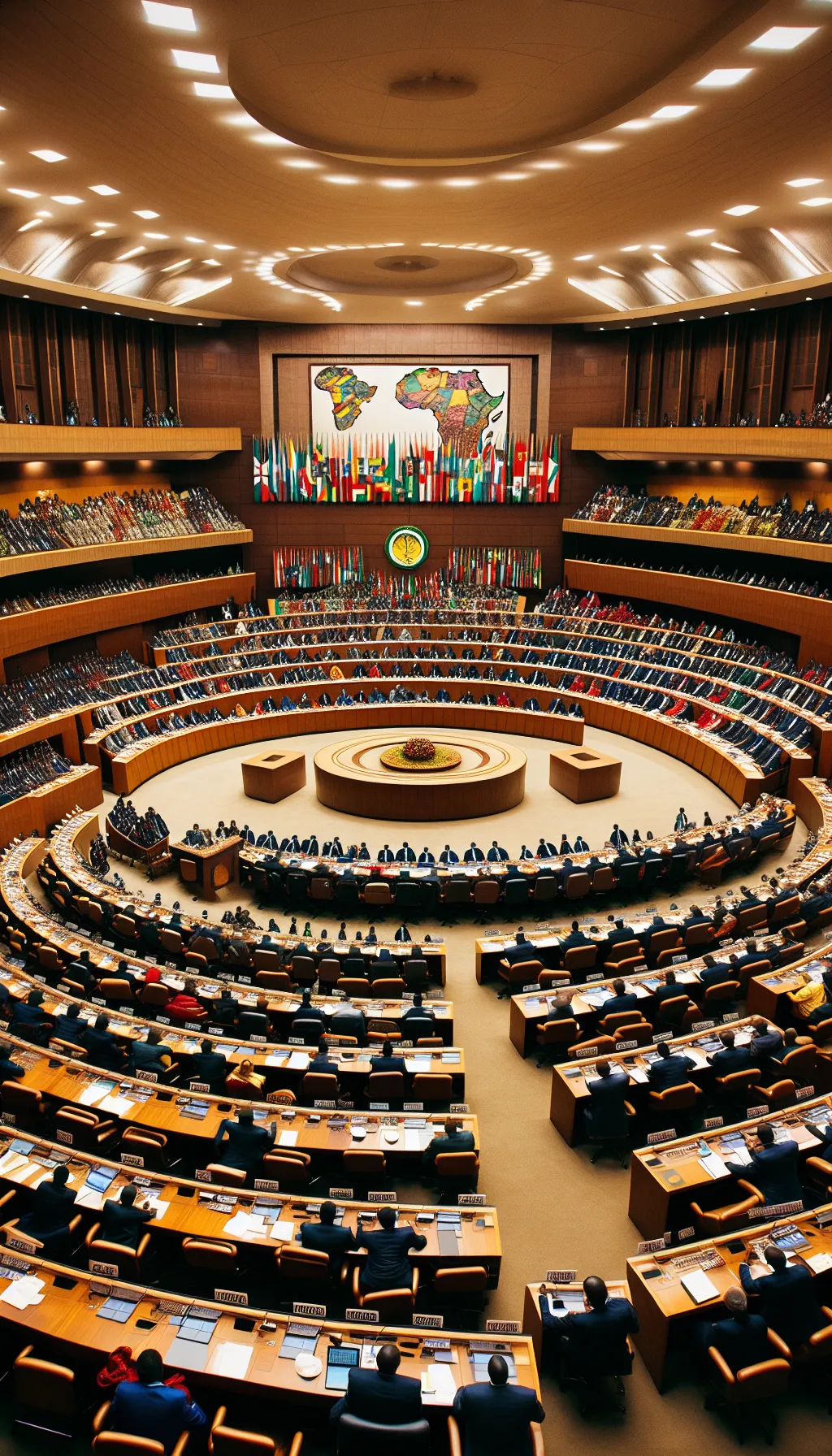Ethiopia – Unity in Diversity: The Birth of the Organization of African Unity - 1963
TLDR;
- Event: The Organization of African Unity (OAU) was founded on May 25, 1963, in Addis Ababa, Ethiopia, with 32 African nations initially, later expanding to 34.
- Purpose: Aimed to promote unity, solidarity, and cooperation among African states, and to eradicate colonialism and foreign interference.
- Achievement: The adoption of the OAU Charter marked a significant step towards African self-determination and collective problem-solving, despite challenges like political divisions.
- Legacy: The OAU’s principles and goals were carried forward by the African Union in 2002, continuing the fight for freedom, equality, and unity across the continent.
–
Story
In the heart of Addis Ababa, Ethiopia, on May 25th, 1963, a historic gathering was taking place. The air was thick with anticipation as leaders from 32 African nations convened, their eyes set on a common goal: to forge a united front against the remnants of colonialism and neocolonialism that still gripped the continent. This was the birth of the Organization of African Unity (OAU), with additional nations like Algeria and Togo soon joining, bringing the total to 34 signatories.

The early 1960s were a time of great change and upheaval in Africa. Many nations had recently gained independence, yet the scars of colonial rule lingered. The continent was a patchwork of newly sovereign states, each grappling with its own challenges. Amidst this backdrop, the vision of a unified Africa began to take shape.
The OAU was more than just a political alliance; it was a beacon of hope. Its charter was clear: to promote unity and solidarity among African states, to coordinate and intensify cooperation for development, and to eradicate all forms of colonialism and foreign interference. The leaders knew that only through unity could Africa truly stand strong on the global stage.
The turning point came with the adoption of the OAU Charter on May 25, 1963, though the signing process extended over the following days as leaders finalized their commitments. As the ink dried, a new era dawned for Africa. The OAU became a platform for dialogue and collaboration, a place where African nations could address their issues collectively, despite its principle of non-interference sometimes limiting its effectiveness in resolving conflicts. It was a bold step towards self-determination and a testament to the power of unity.
Though the OAU faced many challenges over the years, including political divisions and limited enforcement mechanisms, its legacy is undeniable. It laid the groundwork for the African Union in 2002, which continues to strive for the ideals set forth in 1963. The spirit of the OAU lives on, reminding us of the strength found in unity and the enduring fight for freedom and equality.
–
| Would a different approach to unity have changed Africa’s path? |